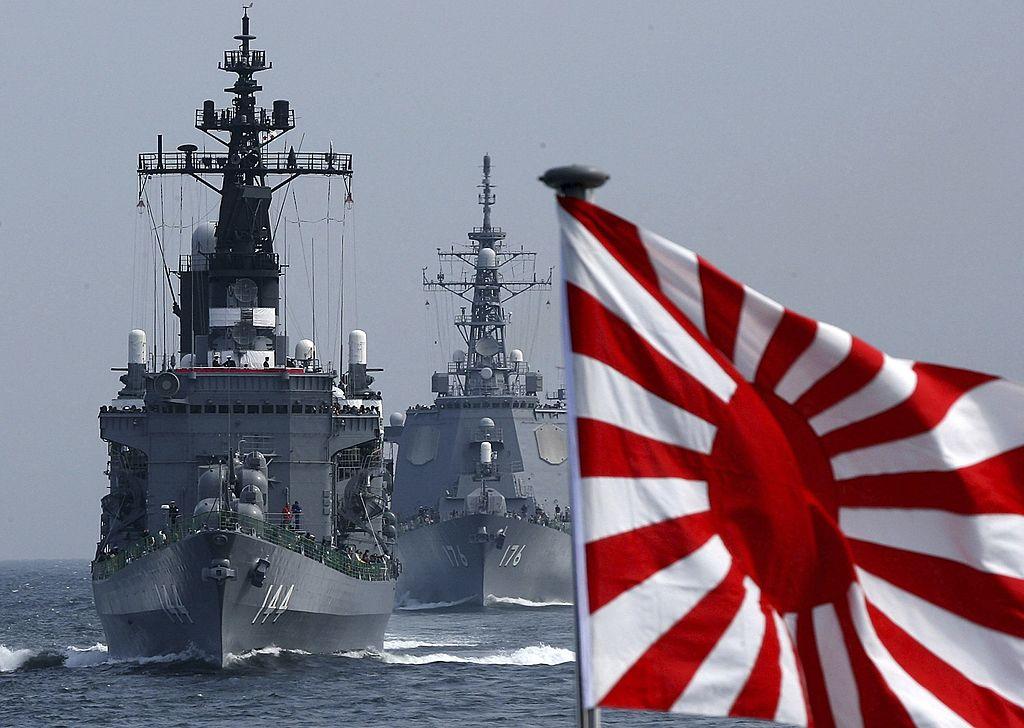
On 14 November, Aso Taro, the vice president of Japan’s ruling Liberal Democratic Party, called for Japan to be included in the AUKUS trilateral security partnership with Australia, the United Kingdom and the United States. This ‘JAUKUS’ proposal is nothing new. Since the inception of AUKUS in September 2021, Japan has been viewed as the leading candidate for additional membership due to its solid alliance with the US and membership of other security partnerships, including the Quad. In August, the UK House of Commons Foreign Affairs Committee recommended the inclusion of Japan and South Korea into Pillar 2 of the agreement.
While it’s a natural strategic choice for Japan to join in advanced military technology cooperation under AUKUS Pillar 2, a fundamental stumbling block is Japan’s lack of effective counter-espionage laws.
Japan currently has some laws dedicated to preventing espionage. One is the Unfair Competition Prevention Act (UCPA) which sets the maximum criminal punishment as imprisonment for not more than 10 years or a fine of not more than 20 million yen for the illicit transfer or disclosure of trade secrets. The Act on the Protection of Specially Designated Secrets (PSDS) that was passed by the Abe administration in 2014 allows the government to designate certain information related to national security and diplomacy as special secrets and sets the maximum punishment at imprisonment for not more than 10 years or a fine of not more than 10 million yen for leaking such secrets.
There are three deficiencies there. One is Japan’s weak punishment for espionage compared to other AUKUS members. The US has the Espionage Act 1917 with the maximum punishment of death or imprisonment for any number of years. With the National Security Legislation Amendment Bill 2018, Australia punishes espionage, defined as ‘dealing with security classified or national security information to be communicated to a foreign principal’ with at least 10 years imprisonment, up to imprisonment for life. Its 27 newly introduced offences cover a preparatory offence punished by imprisonment for 15 years and interference, as separated from espionage, for up to 20 years. Despite significant domestic opposition since 2015, the UK parliament finally updated its counter-espionage law in July 2023, following Australia’s path.
The second problem is the limited coverage of espionage. The UPCA only criminalises actions for ‘the purpose of obtaining an unjust profit or causing damage to the secret holder’ (Article 21). There is no articulation of foreign principals or foreign states. Article 24 of the PSDS criminalises obtaining, or attempting to obtain, secrets for foreign states (it says ‘gaikoku’ without definition). The PSDS criminalises disclosure of secrets, obtaining such secrets and conspiring, abetting, or inciting others to commit such acts. Other forms of espionage, such as possession and concealment, making a record or copy, or communicating and publishing secrets are out of its purview.
Finally, Japan needs to set up broader rules and regulations to protect its business and education sectors from espionage. Australia’s Foreign Relations Act 2020 created a framework for the Commonwealth to review and cancel arrangements between state and territory entities and foreign governments. The Foreign Influence Transparency Scheme Act 2018 requires registration and disclosure of activities undertaken on behalf of foreign principals. The University Foreign Interference Task Force established in 2019 guides Australian universities in providing training courses on foreign interference. As the largest academic funding body, the Australian Research Council articulates its policy and acknowledgement of the risks associated with foreign interference.
Japan lacks such measures. It has promoted economic security measures, including protection of critical infrastructure, resilient supply chains and development of advanced technology, culminating in the Economic Security Promotion Act in May 2022. But measures to expand the coverage of espionage and foreign interference and protecting its research organisations and universities are limited. Japanese universities reluctantly commit to voluntary scrutiny of foreign researchers as they have no internal intelligence capabilities. The Science Council of Japan strongly opposes its own government’s intervention while it has not adopted any official position on foreign interventions.
Overall, despite huge security legislation reforms under the Abe administration, Japan still lives in either pre-war trauma or the post-war euphonism. Domestic backlash against the SDS in 2014 often raised ‘remember the Security Maintenance Law 1925’, which the then government used to arbitrarily arrest and even torture anti-government protesters and communists.
Upon its defeat in 1945, the Japanese government deleted Article 85 of the criminal law which said ‘a person who engages in espionage for the enemy or aids and abets the espionage of the enemy shall be sentenced to death or to imprisonment for life, or to imprisonment for not less than five years. The same shall apply to those who leak military secrets to the enemy’. This was deleted because the concept of ‘enemy’ no longer existed in the Japanese constitution. Article 9 of Japan’s Constitution renounces war as a sovereign right of the nation.
If Japan wants to join a JAUKUS or a ‘Six Eyes’, it has to share not only strategic interests or values, but rules. However, no one waits for Japan. AUKUS members see AUKUS as a critical opportunity to create ‘a seamless defence industrial base across the three countries’. This will lead them to remove almost all barriers among themselves but setting up high fences against others. Australia is taking further actions to amend its defence control legislation to smoothen its AUKUS partnership while the US Congress carefully scrutinises the possibility of sophisticated submarine technologies leaking from Australia to others. Embodying Abe’s political credo of graduating from the post-war regime is essential element to the realisation of JAUKUS.